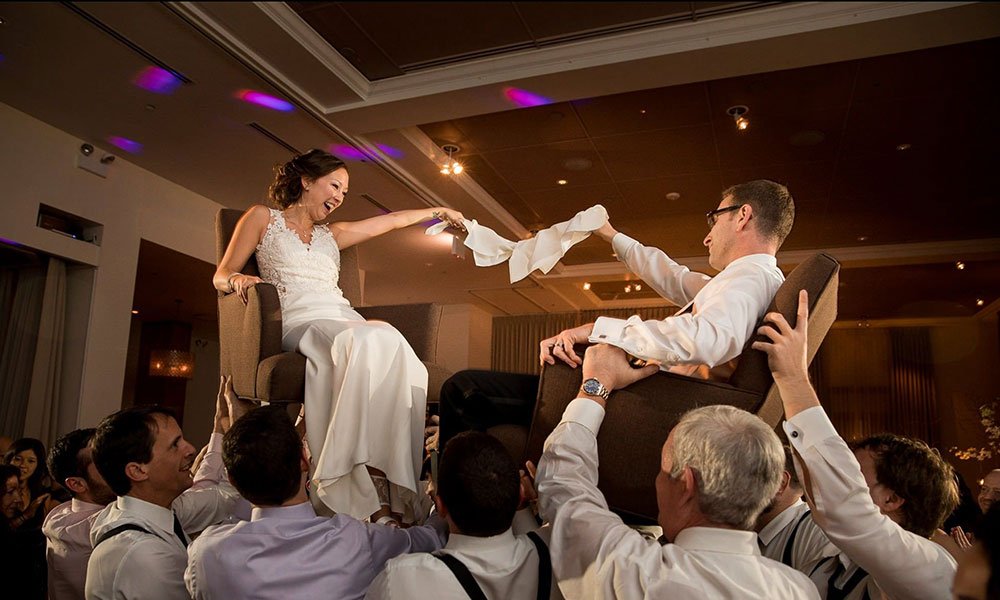



Register today to get your
FREE VOUCHERS & GUIDE
There are many traditional customs that happen during a Jewish wedding ceremony, including the use of the Chuppa (the canopy) and the smashing of the glass. In today’s modern world more and more Jews are beginning to embrace more modern practices such as the exchanging of the rings instead of coins as was customary thousands of years ago. Jewish weddings used to be simple financial transactions but nowadays the marriage is done for love of one another and is hugely celebrated for this reason. There are many up-to-date alternatives that you can include in the ceremony and you can be happy knowing that these will be accepted by the Jewish community.
The Ketubah, or the marriage document, is traditionally written in Ancient Aramaic to avow the bride’s acceptance of the groom and the groom’s promise to forever support her. This doesn’t always work in our modern day; so many couples are changing parts of the Ketubah to include a vow of commitment from both of them, and a new declaration to God and the Jewish people. As well as changing the wording, some couples also hire professional calligraphers to write and decorate the document with Jewish symbols and flowers to display in their new home. There is also the circling tradition called the Circling ceremony, where the bride will walk around her husband seven times to create a magical wall protecting him from evil spirits and temptation. Today it is becoming more popular for the bride and groom to circle each other now that women have the same rights as men in a marriage.
The customary Smashing of the Glass has hasn’t changed at all. It is still done after the ceremony and before leaving the Chuppa to serve as a reminder of the fragility of life, and to represent the destruction of the Temple in Jerusalem. A part of this custom has altered slightly, where in more modern weddings both the bride and groom stomp on a glass or even a light bulb as it’s much easier to break and is less waste than a wine glass. Another tradition that is quite often changed or even ignored is the Yichud, or seclusion. This is where, after the ceremony, the bride and groom are allowed to spend about twenty minutes together alone to reflect on the ceremony and to share their happiness privately.
Sometimes it can be customary for the couple to enjoy their first meal as husband and wife together in private, but this too is a tradition that is rarely being followed anymore. The majority of newlyweds are more than happy to celebrate with all of the guests, and for some couples it can also be a great opportunity to meet and get to know distant family members. One of the last traditions to happen at a Jewish wedding is the Chair Dance, where the bride and groom are lifted into the air in their chairs, but modern health and safety laws can sometimes forbid this depending on the venue.
Wedding Services In London
Asian Wedding | Nigerian Weddings | Muslim Weddings | Indian Wedding | Hindu Weddings | Gujarati Weddings | Jewish Weddings | The Grand Hall | Entrance | The Blue Bar | Bar Mitzvah | Birthday Parties | Dinner & Dance | Wedding Receptions | Engagements | Themed Parties | Birthday Parties | Kids Parties | Civil Marriages